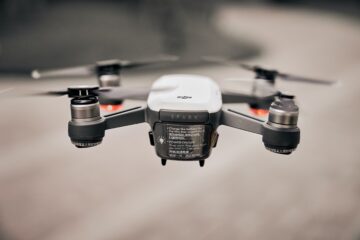Welcome to this comprehensive waste management, energy consumption, and public safety. Computer science graduates can contribute to the development of smart city infrastructure, leveraging IoT technologies to create sustainable and livable urban environments.
Manufacturing and Industry 4.0
The integration of IoT in manufacturing processes has given rise to Industry 4.0, where machines, devices, and sensors communicate and collaborate with each other autonomously. Computer science graduates can contribute to the design and implementation of smart factories, leveraging IoT to enhance productivity, reduce downtime, and optimize supply chain management.
Agriculture
IoT has the potential to transform the agriculture industry by enabling precision farming, real-time monitoring of crops and livestock, and optimized resource utilization. Computer science graduates can contribute to the development of IoT-based agricultural solutions, helping farmers make data-driven decisions and improve yield.
Future Trends and Emerging Technologies in IoT
The field of IoT is continuously evolving, with new technologies and trends shaping its future. As a computer science graduate, staying updated with these emerging technologies is essential. Let’s explore some of the trends that are likely to have a profound impact on IoT:
5G and Edge Computing
The advent of 5G networks enables faster data transmission, reduced latency, and enhanced connectivity for IoT devices. Computer science graduates should familiarize themselves with 5G technology and its implications in the IoT landscape. Additionally, the rise of edge computing, where computational tasks are performed closer to the devices, enables real-time analytics and quicker response times.
Blockchain and IoT
Blockchain technology offers enhanced security, transparency, and immutability, making it an ideal choice for securing IoT systems. Computer science graduates should explore the convergence of blockchain and IoT, as it opens up new avenues for secure data exchange and decentralized IoT applications.
Digital Twins and Simulation
Digital twins, virtual replicas of physical objects or systems, are gaining popularity in IoT. Computer science graduates can leverage digital twin technology to create simulations and predictive models, enabling proactive maintenance, optimization, and real-time monitoring of IoT devices and systems.
The Intersection of Computer Science and IoT
IoT Architecture and Frameworks
Computer science graduates play a crucial role in IoT architecture design and development. They have the expertise to create scalable, secure, and efficient frameworks that can handle the massive influx of data generated by IoT devices. Understanding cloud platforms, edge computing, and data analytics are essential skills for computer science graduates in the IoT domain.
Embedded Systems and Hardware
IoT devices are embedded with various sensors and microcontrollers that enable them to interact with the physical world. Computer science graduates with a strong foundation in embedded systems and hardware can design and develop the hardware components of IoT devices, ensuring seamless integration and optimal performance.
Data Management and Analytics
Data is at the core of IoT, and efficient data management and analytics are crucial for deriving meaningful insights. Computer science graduates with expertise in database management, data mining, and data analytics can leverage their skills to manage and analyze the vast amounts of data generated by IoT devices, enabling organizations to make informed decisions and optimize their operations.
Key Skills for Computer Science Graduates in IoT
To excel in the field of IoT, computer science graduates should acquire and enhance certain skills. Let’s explore some of these key skills:
Programming Languages
Proficiency in programming languages is of utmost importance for computer science graduates in IoT. Languages such as C, C++, Python, Java, and JavaScript are widely used in IoT development. Having a strong command over these languages enables graduates to create robust and efficient IoT solutions.
Networking and Communication Protocols
A comprehensive understanding of networking concepts and communication protocols is vital for IoT professionals. Computer science graduates should familiarize themselves with protocols like MQTT, CoAP, HTTP, and TCP/IP, as these protocols facilitate seamless communication between IoT devices and the network infrastructure.
Security and Privacy
As IoT devices collect and transmit sensitive data, ensuring security and privacy is a critical aspect of IoT development. Computer science graduates should be knowledgeable about encryption techniques, secure communication protocols, and vulnerability assessment to safeguard IoT systems from cyber threats.
Machine Learning and Artificial Intelligence
The integration of machine learning and artificial intelligence techniques is transforming the IoT landscape. Computer science graduates with expertise in these domains can leverage machine learning algorithms and AI models to extract valuable insights from IoT data and enable autonomous decision-making.
Industries and Applications of IoT
The scope of IoT extends across various industries and applications. Let’s explore some of the prominent sectors where IoT is making significant impacts:
Healthcare
IoT has revolutionized the healthcare industry by enabling remote patient monitoring, wearable health devices, and real-time data analysis. Computer science graduates can contribute to developing innovative healthcare solutions that improve patient outcomes and enhance the efficiency of healthcare services.
Smart Cities
In the era of smart cities, IoT plays a crucial role in optimizing various aspects such as traffic management,
Conclusion
In conclusion, computer science graduates have a significant scope of opportunities in the field of Internet of Things. With their expertise in programming, networking, and data management, they possess the necessary skills to contribute to the development of innovative and transformative IoT solutions. By acquiring key skills, staying updated with emerging technologies, and exploring diverse industries, computer science graduates can carve out successful careers in this exciting and dynamic field.
If you’re a computer science student or graduate interested in IoT, we encourage you to delve deeper into the subject, explore hands-on projects, and connect with professionals and communities involved in IoT development. The future holds immense potential for computer science graduates in the IoT industry, so embrace the opportunities and make a profound impact in this rapidly evolving domain!
- What is the Internet of Things (IoT)? The Internet of Things refers to the network of interconnected devices that can collect and exchange data through sensors and software.
- What role do Computer Science graduates play in IoT? Computer Science graduates contribute to the development, implementation, and maintenance of IoT systems and applications.
- How does IoT impact industries? IoT revolutionizes industries by enhancing efficiency, automation, and data-driven decision-making.
- What skills are essential for a career in IoT for Computer Science graduates? Proficiency in programming, data analysis, cybersecurity, and knowledge of networking protocols are crucial.
- What does the future hold for IoT and Computer Science graduates? The future is promising, with ongoing technological advancements creating new avenues for innovation and growth.



0 Comments